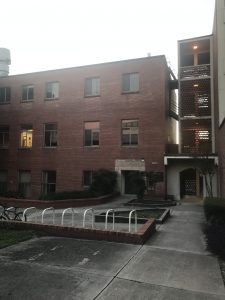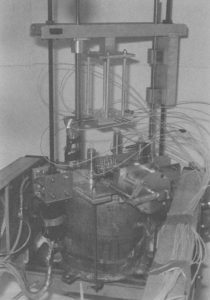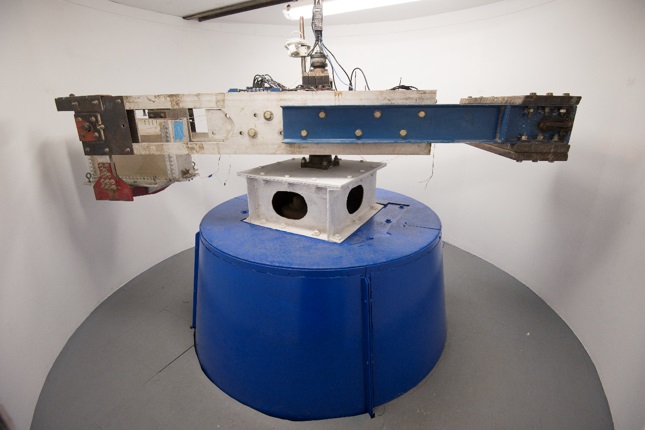 The Geotechnical Centrifuge Laboratory was founded in the 1970’s with the initial operation of a 2-meter centrifuge obtained from NASA. In the early 1980s, a 3-meter beam centrifuge was built in Reed Lab and is the current laboratory for centrifuge modeling at the University of Florida. Past research includes coal waste embankment stability,
The Geotechnical Centrifuge Laboratory was founded in the 1970’s with the initial operation of a 2-meter centrifuge obtained from NASA. In the early 1980s, a 3-meter beam centrifuge was built in Reed Lab and is the current laboratory for centrifuge modeling at the University of Florida. Past research includes coal waste embankment stability,  underground structures subjected to blast loading, large strain consolidation of slurried soils, single and multiple pile in-flight installation followed with axial and lateral load tests, development of P-y multipliers for pile groups, combined torque and lateral loading on drilled shafts, bearing stiffness of drilled shafts, external stability of mechanically stabilized earth walls, influence of sheet pile wall on axial capacity of driven piles, bearing resistance of cantilever sheet piles, and footings subjected to inclined-eccentric loads. Experimental capabilities include modeling driven piles, drilled shafts, slopes, reinforced earth structures, and shallow foundations for soil structure interaction. Models can be built in saturated and partially saturated soil and exposed to static and dynamic loads. Using an array of sensors, stress and strain sensing of the models (structure and soil) can be designed for any experiment. There is model fabrication and instrumentation facilities. A geotechnical testing lab for determination of soil properties is available to all users of the laboratory.
underground structures subjected to blast loading, large strain consolidation of slurried soils, single and multiple pile in-flight installation followed with axial and lateral load tests, development of P-y multipliers for pile groups, combined torque and lateral loading on drilled shafts, bearing stiffness of drilled shafts, external stability of mechanically stabilized earth walls, influence of sheet pile wall on axial capacity of driven piles, bearing resistance of cantilever sheet piles, and footings subjected to inclined-eccentric loads. Experimental capabilities include modeling driven piles, drilled shafts, slopes, reinforced earth structures, and shallow foundations for soil structure interaction. Models can be built in saturated and partially saturated soil and exposed to static and dynamic loads. Using an array of sensors, stress and strain sensing of the models (structure and soil) can be designed for any experiment. There is model fabrication and instrumentation facilities. A geotechnical testing lab for determination of soil properties is available to all users of the laboratory.

